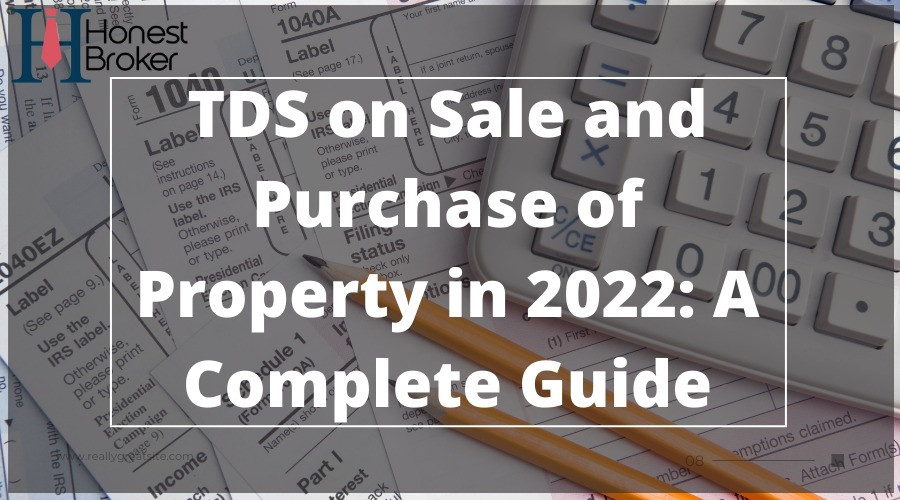 Blog
Blog
If
you are thinking about purchasing a real estate property shortly then make sure
that you are well informed about the tax that you will be expected to pay. Let
me tell you an interesting point about TDS, it is only applicable on the sale
of a property that costs more than 50 lakhs or somewhat more than that.
During
the process of buying a property, you are obligated to subtract a certain
percentage of Tax at Source while giving the money to the seller.
Types of TDS of sale and Purchase of Property
TDS on Sale of Property
When
you are planning to buy a property, it can be a building a flat, or even an
apartment that has a value of more than 50 lakhs, then you are in a good spot.
You are obligated to deduct a certain percentage while paying the money to the
seller. This can be defined as the TDS on the sale of a property.
If
you go through Union Budget 2021, then you will see two new sections 206AB and 206CCA in it. As per these
sections, in case a taxpayer has a TDS of more than 50,000 in the period of the
last two years without paying any income tax, then the rate of TDS will be
multiplied by the current rate.
TDS on Sale of Immovable Property
What
do you understand by immovable property? It can be described as a building, a
part of the building, or any piece of land other than agricultural land. If the
value of the property is less than 50 lakhs, then there will no elimination
from the payment of sale of the property. The sale deed is the key basis for
TDS and not capital gains.
TDS on Sale of Property by NRI
As
per the law, if an Indian resident gets a piece of land from a Non-Resident
Indian (NRI), then he/she should be able to give the balance amount after the
deduction of tax to the seller. According to Section 195, the TDS rate for long
term assets (assets held for more than 3 years) stands high at 20%, on the
other hand, the rate for short term assets (assets that are held for a period
less than 3 years) varies from property to property.
TDS on Sale of Property in case of joint sellers
In
the case of joint sellers, the TDS has to be compensated in proportion to
considered sale value or capital gains. Every seller is supposed to pay TDS as
per the details stated in the documents of the property.
TDS on Purchase of Immovable Property
To
acquire a better understanding of TDS on the purchase of immovable property,
you can refer to section 194 of the
Income Tax Act. If a person purchases an immovable property then he/she
should be well-versed with the process.
TDS on Purchase of property from NRI
What
they say is pretty much true, exceptions are always there my friend. The tax
obligations will be different in the case of an NRI. The government deducts the
capital gains from the NRI in addition to TDS. There is a high level of TDS on
the purchase of property by NRIs.
How to deduct TDS on purchase of property
As
a seller, you can only deduct the TDS on the purchase of property under two
conditions. They are as follows:
1.
During the procedure of execution of the conveyance deed
2.
When you are paying the advance payment, then it is mandatory to pay a specific
advance before the execution of the conveyance deed.
The
buyer needs to submit the amount of TDS to the central government of India.
This step should be completed within 30 days from the end of the month when the
tax has been deducted.
To
complete the full procedure you must fill in Form-cum-challan No 26QB. And
let’s say for instance if the property has more than one buyer, then you will
have to fill the form 20QB for each group of sellers and buyers. This is
because the TDS liability is different in the scenario of the purchase of
property in the joint name.
How to pay TDS on purchase of property
You
can kick start the process of paying the TDS by visiting the official website
of the income tax department. You will be guided at every step of the
procedure. Then go to form 26QB and if you are a company then click on the
option of Corporation Tax, and if that’s not the case then you can select
income tax.
Further
down the road, you will be asked for details like the type of payment and the
status of the buyer, seller, or transferor. Click on the resident and if the
seller is an NRI then you will have to fill the form 27Q. After fulfilling
these steps, you will have to insert the details of PAN and the address of the
seller or the buyer. Then, enter the amount that has been paid to the seller.
If you have paid the amount in the form of instalments, then write the amount
of instalment in the form.
By
default, the TDS rate of 1% will automatically be present in the form based on
the PAN number Put the amount of the TDS and any interest or fee paid through
the challan in the form.
Choose
the option to pay immediately if you are making the payment via the means of
internet banking or through debit cards. You can also pick the e-tax payment on
a specific date as per the authorized branch of the bank. From that step
forward, you will get a confirmation code and you will have to enter the code
and click on Proceed.
Before
submitting the form, make it a point to go through the form once and for all so
that you can ensure that there are no mistakes in the form. Verifying
information is very important as it can affect the procedure and create more
complications for you in the long run. When you feel that every detail in the
form is correct as per your knowledge then you proceed and click on the option
of confirm.
If
you have chosen the option of e-tax, then you will be taken back to the
official banking site and if not then a challan will be generated. You will
have to pay the authorized challan to the respective branch of the bank.
Conclusion
Selling
and buying a real estate property is a big decision. It can be a very hectic
task for the buyer to set their heart on one property and then take the road of
actually obtaining that property. Simultaneously, selling a property is a huge
decision for the owner of the property as well.





